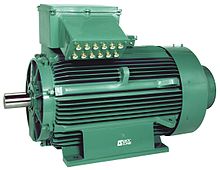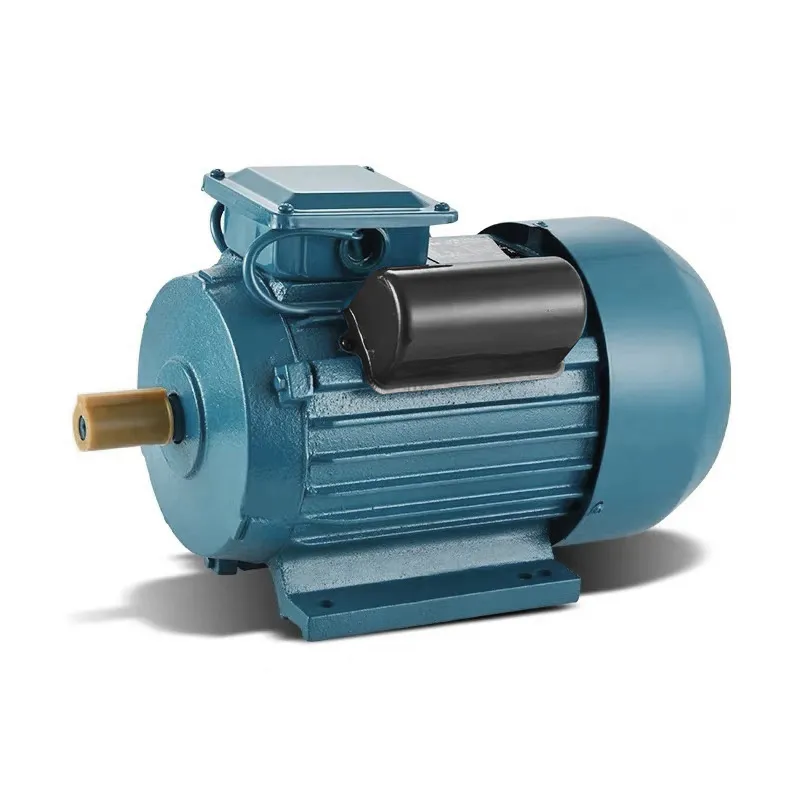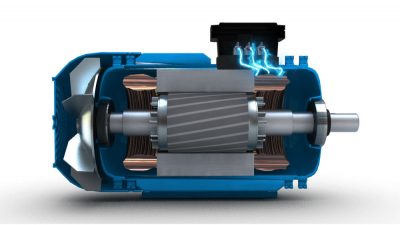Product Description
YBF Three Phase Explosion Proof Asynchronous AC Blower Motor for Chemical Industry
Product Description
HangZhouda Motors Factory Advantages.
Prompt Quotation.
Competitive Price
Guaranteed Quality
Timely Delivery.
100% Tested.
Sincere and Professional Service.
Outstanding Finishing Surface.
Strictly and Perfect Management is guaranteed for Production.
Specialized in Manufacturing and Supplying a wide range of Electric Motors since year 2002.
Have Rich Experience and Strong ability to Develop New Products.
Have Ability to Design the Products Based on Your Original Samples.
WHAT WE DO AT HangZhouDA
Stamping of lamination
Rotor die-casting
Winding and inserting -both manual and semi-automatically
Vacuum varnishing
Machining shaft, housing, end shields, etc^
Rotor balancing
Motor assembly
Painting – both wet paint and powder coating
Packing
Inspecting spare parts every processing
100% test after each process and final test before packing.
WHAT HangZhouDA CAN DO FOR CUSTOMERS
HangZhouda supplies standard products to customers.
HangZhouda supplies standard products under customers’ brands and packaging, etc
HangZhouda R&D department develops any new products together with the customers.
We Promise you all the time after you working with us for CHINAMFG Business.
Prompt Reply to Your Inquiry within 24 Hs during Working Days.
Long Life Time Products
Products One Year Guarantee from the Date of Sales.
Professional Service in Handling Your Goods in Daily Communications
Deliver Time about 15-20 days for Normal Models.
Deliver Time about 30 days for New Models CHINAMFG Receiving the New Samples.
Product Parameters
| Model NO. | YBF-B | Rated Power | 0.18kw-7.5kw |
| Number of Poles | 2P,4P,6P,8P | EFF | IE1 |
| Voltage | 220/380/440/660V | Frequency | 50,60Hz |
| Protection Class | IP55 | Insulation Grade | F |
| Cooling Method | IC411 | Continuous Working Duty | S1 |
| Starting Mode | Direct on-line Starting | Transport Package | Plywood case |
| Frame Material | Cast Iron | Origin | HangZhou, China |
| Mounting Position | Vertical | HS Code | 8501520000 |
| Certification | ISO9001, CCC, CE, EXDII BT4 | Specification | IEC 60034-3-2:2019 |
| Brand | K.lida | Warranty time | 12 months |
Detailed Photos
Company Profile
HangZhouda Technology Co., Ltd. is a modern enterprise that integrates scientific research, production, sales, and service. The company has advanced production equipment, first-class testing equipment, professional R&D personnel, and an excellent management team. Multiple products have been patented. And it has 3 subsidiaries: HangZhouda Motor, HangZhouda Welding Machine, and HangZhouda Welding Materials.
The company’s motor products mainly include various series of products such as YBX3, YBX4, YE3, YE4, YBBP, YVF, YBF3, YSF3 three-phase motors, etc. The products have passed 3C certification, CE certification, IS09000-2015 quality management system certification, and have obtained QS production license, EX explosion-proof certificate, export product quality license, etc. The products are exported to both domestic and foreign markets.
The company implements a sustainable development strategy, upholds the business philosophy of “integrity, pragmatism, efficiency, and innovation”, always adheres to the policy of “people-oriented, quality wins”, and establishes a good corporate image with advanced equipment, scientific management, meticulous design, exquisite craftsmanship, and high-quality service. The company is based in the industry and dedicated to society with high standard product quality, discounted prices, and comprehensive and thoughtful services.
FAQ
Q1: Are you a factory or a trading company?
A1: As a manufacturer, we have many years of experience in the development and production of motors and industrial fans
Q2: Do you provide customized services?
A2: Of course, both OEM and ODM are available.
Q3: How to obtain a quotation?
A3: Regarding your purchase request, please leave us a message and we will reply to you within 1 hour of working hours.
Q4: Can I buy 1 as a sample?
A4: Of course.
Q5: How is your quality control?
A5: Our professional QC will inspect the quality during the production process and conduct quality testing before shipment.
Q6: What warranty do you offer?
A6: Within 1 year, during the warranty period, we will provide free easily damaged parts to solve any problems that may occur except for incorrect operation.
/* January 22, 2571 19:08:37 */!function(){function s(e,r){var a,o={};try{e&&e.split(“,”).forEach(function(e,t){e&&(a=e.match(/(.*?):(.*)$/))&&1
| Application: | Industrial, Universal, Household Appliances |
|---|---|
| Operating Speed: | Constant Speed |
| Number of Stator: | Three-Phase |
| Species: | Ybf |
| Rotor Structure: | Squirrel-Cage |
| Casing Protection: | Explosion-Proof Type |
| Samples: |
US$ 100/Piece
1 Piece(Min.Order) | |
|---|
| Customization: |
Available
|
|
|---|

Are there environmental considerations associated with the use of AC motors?
Yes, there are several environmental considerations associated with the use of AC motors. These considerations are primarily related to energy consumption, greenhouse gas emissions, and the disposal of motors at the end of their life cycle. Let’s explore these environmental considerations in detail:
- Energy Efficiency: AC motors can have varying levels of energy efficiency, which directly impacts their environmental impact. Motors with higher efficiency convert a larger percentage of electrical energy into useful mechanical work, resulting in reduced energy consumption. By selecting and using high-efficiency AC motors, energy usage can be minimized, leading to lower greenhouse gas emissions and reduced reliance on fossil fuels for electricity generation.
- Greenhouse Gas Emissions: The electricity consumed by AC motors is often produced by power plants that burn fossil fuels, such as coal, natural gas, or oil. The generation of electricity from these fossil fuels releases greenhouse gases, contributing to climate change. By employing energy-efficient motors and optimizing motor systems, businesses and individuals can reduce their electricity demand, leading to lower greenhouse gas emissions and a smaller carbon footprint.
- Motor Disposal and Recycling: AC motors contain various materials, including metals, plastics, and electrical components. At the end of their life cycle, proper disposal or recycling is important to minimize their environmental impact. Some components, such as copper windings and steel casings, can be recycled, reducing the need for new raw materials and energy-intensive manufacturing processes. It is crucial to follow local regulations and guidelines for the disposal and recycling of motors to prevent environmental pollution and promote resource conservation.
- Manufacturing and Production: The manufacturing and production processes associated with AC motors can have environmental implications. The extraction and processing of raw materials, such as metals and plastics, can result in habitat destruction, energy consumption, and greenhouse gas emissions. Additionally, the manufacturing processes themselves can generate waste and pollutants. Motor manufacturers can mitigate these environmental impacts by adopting sustainable practices, using recycled materials, reducing waste generation, and implementing energy-efficient production methods.
- Life Cycle Assessment: Conducting a life cycle assessment (LCA) of AC motors can provide a holistic view of their environmental impact. An LCA considers the environmental aspects associated with the entire life cycle of the motor, including raw material extraction, manufacturing, transportation, use, and end-of-life disposal or recycling. By analyzing the different stages of the motor’s life cycle, stakeholders can identify opportunities for improvement, such as optimizing energy efficiency, reducing emissions, and implementing sustainable practices.
To address these environmental considerations, governments, organizations, and industry standards bodies have developed regulations and guidelines to promote energy efficiency and reduce the environmental impact of AC motors. These include efficiency standards, labeling programs, and incentives for the use of high-efficiency motors. Additionally, initiatives promoting motor system optimization, such as proper motor sizing, maintenance, and control, can further enhance energy efficiency and minimize environmental impact.
In summary, the environmental considerations associated with the use of AC motors include energy efficiency, greenhouse gas emissions, motor disposal and recycling, manufacturing processes, and life cycle assessment. By prioritizing energy efficiency, proper disposal, recycling, and sustainable manufacturing practices, the environmental impact of AC motors can be minimized, contributing to a more sustainable and environmentally conscious approach to motor usage.

How do AC motors contribute to the functioning of household appliances?
AC motors play a crucial role in the functioning of numerous household appliances by converting electrical energy into mechanical energy. These motors are used in a wide range of devices, powering various components and performing essential tasks. Let’s explore how AC motors contribute to the functioning of household appliances:
- Kitchen Appliances: AC motors are found in various kitchen appliances, such as refrigerators, freezers, dishwashers, and blenders. In refrigerators and freezers, AC motors drive the compressor, which circulates the refrigerant and maintains the desired temperature. Dishwashers use AC motors to power the water pumps, spray arms, and the motorized detergent dispenser. Blenders utilize AC motors to rotate the blades and blend ingredients.
- Laundry Appliances: AC motors are integral to laundry appliances like washing machines and clothes dryers. Washing machines rely on AC motors to power the agitator or the drum, facilitating the washing and spinning cycles. Clothes dryers use AC motors to rotate the drum and operate the blower fan, facilitating the drying process.
- Vacuum Cleaners: Vacuum cleaners utilize AC motors to generate suction and drive the motorized brush or beater bar. These motors power the fan or impeller, creating the necessary airflow for effective cleaning.
- Fans and Air Circulation: AC motors are employed in various types of fans, including ceiling fans, table fans, and pedestal fans. These motors drive the fan blades, producing airflow and facilitating air circulation to provide cooling or ventilation in rooms. Additionally, AC motors power exhaust fans used in kitchens, bathrooms, and range hoods to remove odors, smoke, or excess moisture.
- Air Conditioning and Heating Systems: AC motors are critical components in air conditioning and heating systems. They power the compressor, condenser fan, and blower fan, which are responsible for circulating refrigerant, dissipating heat, and delivering conditioned air throughout the house. AC motors enable the regulation of temperature and humidity levels, ensuring comfort in residential spaces.
- Garage Door Openers: AC motors are utilized in garage door openers to drive the mechanism responsible for opening and closing the garage door. These motors generate the necessary torque to lift or lower the door smoothly and efficiently.
- Other Appliances: AC motors are also found in a variety of other household appliances. For instance, they power pumps in water heaters, swimming pool filters, and sump pumps. AC motors are used in dehumidifiers, humidifiers, and air purifiers to drive the fans and other internal components. They are also present in audiovisual equipment, such as DVD players, record players, and fans used for cooling electronics.
In summary, AC motors are essential components in household appliances, enabling their proper functioning and delivering the mechanical energy required for various tasks. From kitchen appliances to laundry machines, fans, air conditioning systems, and more, AC motors provide the necessary power and functionality to enhance our daily lives.

What are the key advantages of using AC motors in industrial applications?
AC motors offer several key advantages that make them highly suitable for industrial applications. Here are some of the main advantages:
- Simple and Robust Design: AC motors, particularly induction motors, have a simple and robust design, making them reliable and easy to maintain. They consist of fewer moving parts compared to other types of motors, which reduces the likelihood of mechanical failure and the need for frequent maintenance.
- Wide Range of Power Ratings: AC motors are available in a wide range of power ratings, from small fractional horsepower motors to large industrial motors with several megawatts of power. This versatility allows for their application in various industrial processes and machinery, catering to different power requirements.
- High Efficiency: AC motors, especially modern designs, offer high levels of efficiency. They convert electrical energy into mechanical energy with minimal energy loss, resulting in cost savings and reduced environmental impact. High efficiency also means less heat generation, contributing to the longevity and reliability of the motor.
- Cost-Effectiveness: AC motors are generally cost-effective compared to other types of motors. Their simple construction and widespread use contribute to economies of scale, making them more affordable for industrial applications. Additionally, AC motors often have lower installation and maintenance costs due to their robust design and ease of operation.
- Flexible Speed Control: AC motors, particularly induction motors, offer various methods for speed control, allowing for precise adjustment of motor speed to meet specific industrial requirements. Speed control mechanisms such as variable frequency drives (VFDs) enable enhanced process control, energy savings, and improved productivity.
- Compatibility with AC Power Grid: AC motors are compatible with the standard AC power grid, which is widely available in industrial settings. This compatibility simplifies the motor installation process and eliminates the need for additional power conversion equipment, reducing complexity and cost.
- Adaptability to Various Environments: AC motors are designed to operate reliably in a wide range of environments. They can withstand variations in temperature, humidity, and dust levels commonly encountered in industrial settings. Additionally, AC motors can be equipped with protective enclosures to provide additional resistance to harsh conditions.
These advantages make AC motors a popular choice for industrial applications across various industries. Their simplicity, reliability, cost-effectiveness, energy efficiency, and speed control capabilities contribute to improved productivity, reduced operational costs, and enhanced process control in industrial settings.


editor by CX 2024-04-03
by
Tags:
Leave a Reply